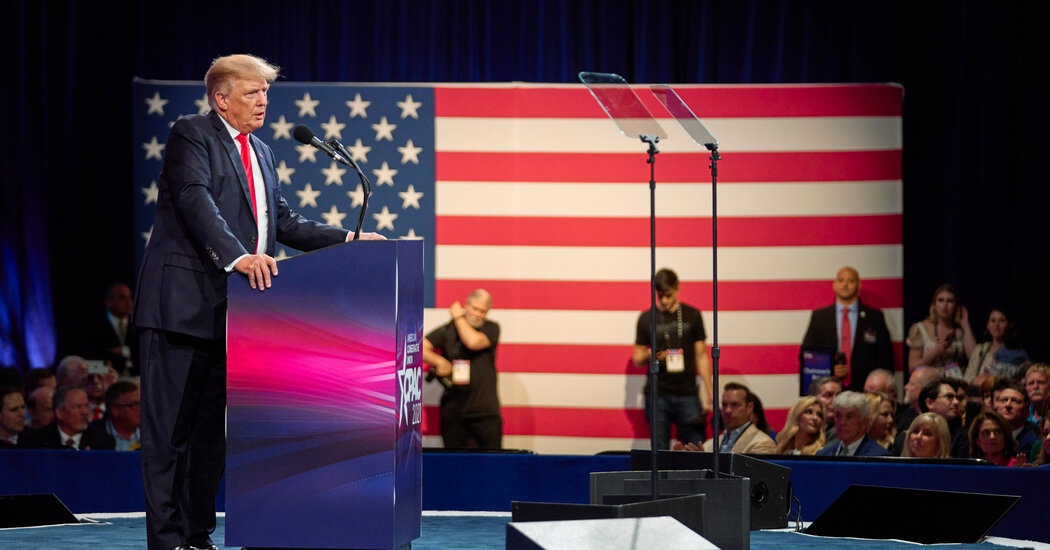
“Generally speaking, omissions aren’t crimes,” said David Alan Sklansky, a law professor and co-director of the Stanford Criminal Justice Center. “But they can be crimes when somebody has a particular duty. So, if you’re talking about an officer of the United States, who has a duty and fails to perform that duty, and the failure to perform that duty causes interference with Congress’s ability to carry out its job, that could be a crime.”
The committee could also pursue cases such as lying under oath, intimidating a witness or contempt of Congress for witnesses who stonewall its subpoenas. Already the House has voted to send two contempt of Congress referrals to the Justice Department for Mr. Trump’s former chief strategist, Stephen K. Bannon, and his former chief of staff Mark Meadows.
A grand jury has indicted Mr. Bannon, but has not yet made a decision about Mr. Meadows’s case.
What about dereliction of duty?
Ms. Cheney said this weekend that she believed Mr. Trump was ethically and morally derelict in his duty on Jan. 6 as he delayed for hours before issuing a video calling off the mob violence.
“One of the things the committee needs to look at,” Ms. Cheney said on ABC’s “This Week,” “is whether we need enhanced penalties for that kind of dereliction of duty.”
Key Figures in the Jan. 6 Inquiry
Ms. Cheney was not suggesting a specific charge of “dereliction of duty” against Mr. Trump, her spokesman said. Rather, she thinks the committee should explore whether to recommend changes to current laws that could hold a future president accountable. She also wants the public to be aware of how Mr. Trump waited hours before calling off the mob, according to her office.
Why is the committee looking for criminality? Isn’t that the Justice Department’s role?
While pursuing criminal charges is the role of the Justice Department, the committee’s robust staff means it could uncover evidence as it does its work. With more than 40 staff members, including former federal prosecutors carrying out the investigation, the panel has interviewed more than 300 witnesses and obtained more than 35,000 documents.
“If they find evidence of something that they think is a crime and they think the Department of Justice should consider prosecuting, it seems to me completely appropriate for them to call it to the attention of the Department of Justice,” Mr. Sklansky said.







